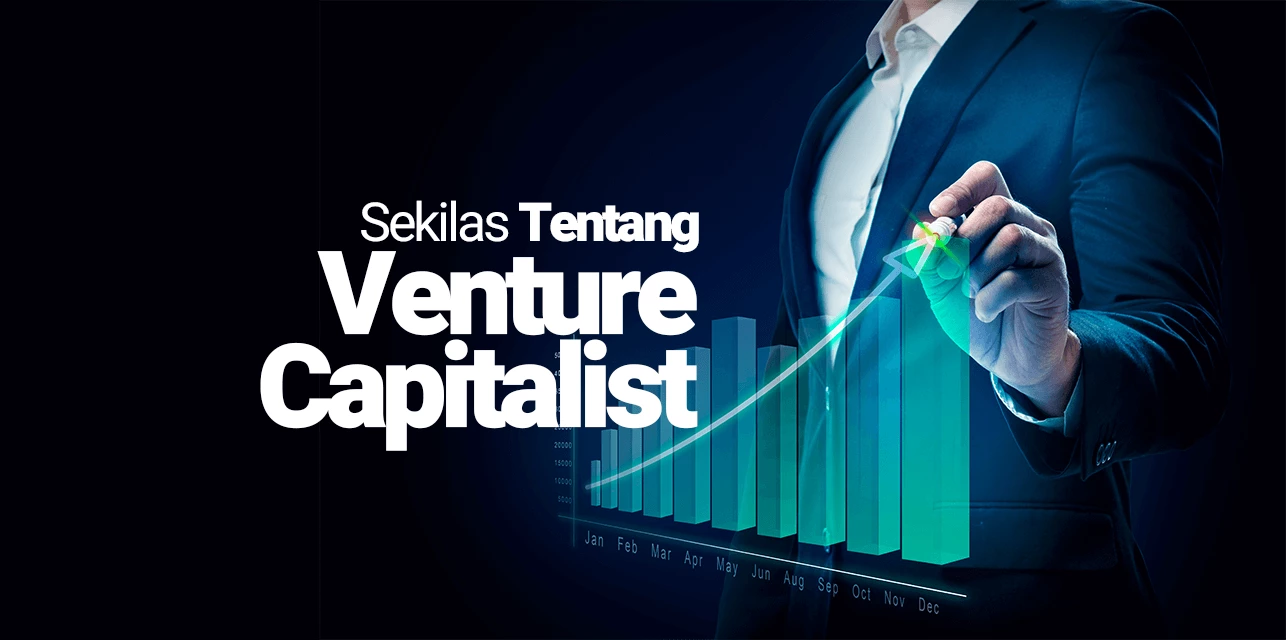Venture Capitalist Is
Venture Capitalists (VCs) are determined by the large investments they make in promising young startups or businesses. A Venture Capitalist financier can be self-employed, but it is more common for them to work in a Venture Capitalist company that raises money from members.
Venture Capitalist companies obtain investment capital from pension funds, insurance companies, wealthy investors, and the like. A team of analysts at the company makes decisions about which businesses to invest in, and they receive management fees (such as a percentage of profits) as compensation for their scouting, analysis, and advisory roles.
Venture Capitalists aren't looking for stable, secure companies—they want to see high growth potential, which comes with extra risk. By one estimate, VC firms typically seek to double their investment by $10 within seven years.
If Venture Capitalist financiers are satisfied with a small profit, they will stick to traditional investments such as blue-chip stocks and index funds. By taking risks on new businesses, technologies, and industries, Venture Capitalists expose themselves to significant risks in the hope of enjoying exponential returns. Sectors that Venture Capitalists commonly invest in include IT, bio-pharmaceuticals, and clean technology.
Characteristics of a Venture Capitalist
1. Not liquid
Venture Capitalist investments are typically long-term investments and are quite illiquid compared to market-traded investment instruments. Unlike, publicly traded investment instruments, VC investments do not offer short-term payment options. The long-term return of a Venture Capitalist investment is highly dependent on the success of the IPO.2. Long-term investment horizons
Venture Capitalist investments have a structural time gap between the initial investment and the final payment. Structural time lags increase liquidity risk. Therefore, VC investments tend to offer very high returns to offset the higher liquidity risk than usual.3. Major differences between private valuations and public valuations (market valuations)
Unlike standard investment instruments that are traded on multiple organized exchanges, VC investments are held by private funds. Thus, there is no way for individual investors in the market to determine the value of an investment. Venture Capitalist financiers also don't know how the market values their investments. This has caused IPOs to be the subject of widespread speculation both from the buy and sell sides.4. Entrepreneurs lack complete information about the market
The majority of Venture Capitalist's investments are into innovative projects that aim to disrupt the market. Such projects offer very high potential returns but also have very high risks. As such, entrepreneurs and VC investors often work in the dark because no one else is doing what they are trying to do.5. Mismatch between entrepreneurs and VC investors
An entrepreneur and an investor may have very different goals with respect to a project. Entrepreneurs may care about the process (i.e., the means) while investors may only care about returns (i.e., the end).6. Mismatch between VC investors and fund managers
An investor and a fund manager may have different goals regarding a particular project. The difference in interest is highly dependent on the contract signed by the fund manager. For example, many fund managers are paid based on the size of the VC fund and not based on the returns generated. Such investment managers tend to take excessive risks in investing.How Venture Capitalists Work Is
Types of Venture Capitalist Funding
There are different types of venture capitalist funding. This time we will discuss the various types. These types are:Seed Capital
If you're just starting out and don't have an organized product or company yet, you'll be looking for start-up capital. Some VCs fund at this stage and the amount invested may be small. Investment capital can be used to create sample products, fund market research, or cover administrative setup costs.Startup Capital
At this stage, your company will have sample products available with at least one principal working full-time. Funding at this stage is also rare. This tends to include other key management hiring, additional market research, and finalization of products or services to introduce to the market.Early Stage Capital
Two to three years into your venture, you've got your company up and running, the management team is ready, and sales are increasing. At this stage, VC funding can help you increase sales to break-even, increase your productivity, or improve your company's efficiency.Expansion Capital
Your company is already established, and now you're looking for a VC to help take your business to the next level of growth. Funding at this stage can help you enter new markets or improve your marketing efforts. You should look for VCs who specialize in next-stage investments.Late Stage Capital
At this stage, your company has achieved impressive sales and revenue and you have a second level of management. You may be looking for funds to increase capacity, increase marketing, or increase working capital.Difference Between Venture Capitalist and Angel Investor
As the two most common alternative sources of funding, angel investors and venture capitalists have some similarities. Both angel firms and venture capitalists cater to innovative startups, and both tend to prefer companies related to technology and science. That being said, there are some important differences between venture capitalists and investors.1. An angel investor works alone, while a venture capitalist is part of the company.
An angel investor, sometimes known as a business angel, is an individual who invests his or her finances in a startup. Angels are wealthy and often influential individuals who choose to invest in high-potential companies in exchange for equity shares. Given that they are investing their own money and there is always an inherent risk, it is highly unlikely that an angel would invest in a business owner who is unwilling to give away a portion of their company. Venture capital firms, on the other hand, are made up of a group of professional investors. Their capital will come from individuals, corporations, pension funds and foundations. These investors are known as limited partners. General partners, on the other hand, are those who work closely with founders or entrepreneurs; They are responsible for managing funds and ensuring the company develops in a healthy manner.2. They invest different amounts.
If you're looking for the possibility to approach venture capitalists or angel investors, you need an accurate idea of what they can provide financially. Typically, angels invest between $25,000 and $100,000 of their own money, although sometimes they invest more or less. When angels gather in groups, they may average more than $750,000. While angel investing is a generally quick solution, you should note that, due to their relatively limited financial capacity, angel investors are not always able to finance the full capital needs of the business. Venture capitalists, on the other hand, invest an average of $7 million in a company.3. They have different responsibilities and motivations.
Angel investors are mainly there to offer financial support. While they may give you advice if you ask for it, or introduce you to important contacts, they are not obligated to do so. Their level of involvement depends on the company's desires and the angels' own tendencies. A venture capitalist is looking for a strong product or service that has a strong competitive advantage, a talented management team, and a broad potential market. Once venture capitalists are confident and have invested, then their role is to help build a successful company, which is where they add real value. Among other areas, venture capitalists will assist in terms of establishing the strategic focus of the company and recruiting senior management. They will be ready to advise and act as a voting board for CEOs. This is all with the aim of helping companies make more money and become more successful.4. Angel investors only invest in early-stage companies.
Angel investors specialize in early-stage businesses, funding late-stage technical development and early market entry. The funds provided by angel investors can make all the difference when it comes to building and running a company. Venture capitalists, on the other hand, invest in early-stage companies and more advanced companies, depending on the focus of the venture capital firm. If a startup shows attractive promise and a lot of growth potential, venture capitalists will be interested in investing. A venture capitalist will also be eager to invest in a business with a proven track record that can demonstrate that he or she has what it takes to succeed. Venture capitalists then offer funding to enable rapid development and growth.5. They differ in due diligence.
Due diligence is an area that has sparked a lot of debate for angel investors over the years. Some angels barely do their due diligence – and they're not really tied down, given that all the money is their own. However, it has been shown that when angel investors do at least 20 hours of due diligence, they are five times more likely to see positive returns. Venture capitalists need to do more due diligence, given that they have a fiduciary responsibility to their limited partners. Venture capitalists can spend more than $50,000 researching their investment prospects. This the discussion from GICTrade regarding the explanation of "Venture Capitalist, Injection Funds for Startup Companies". You can also find out other information about business, investment, and other finances, such as "What is Capital Expenditure? Definition, to Formula" only in the GIC Journal. Register to trade on GIC and stake farming on GIC Bridge.
 Last:
Last: 







